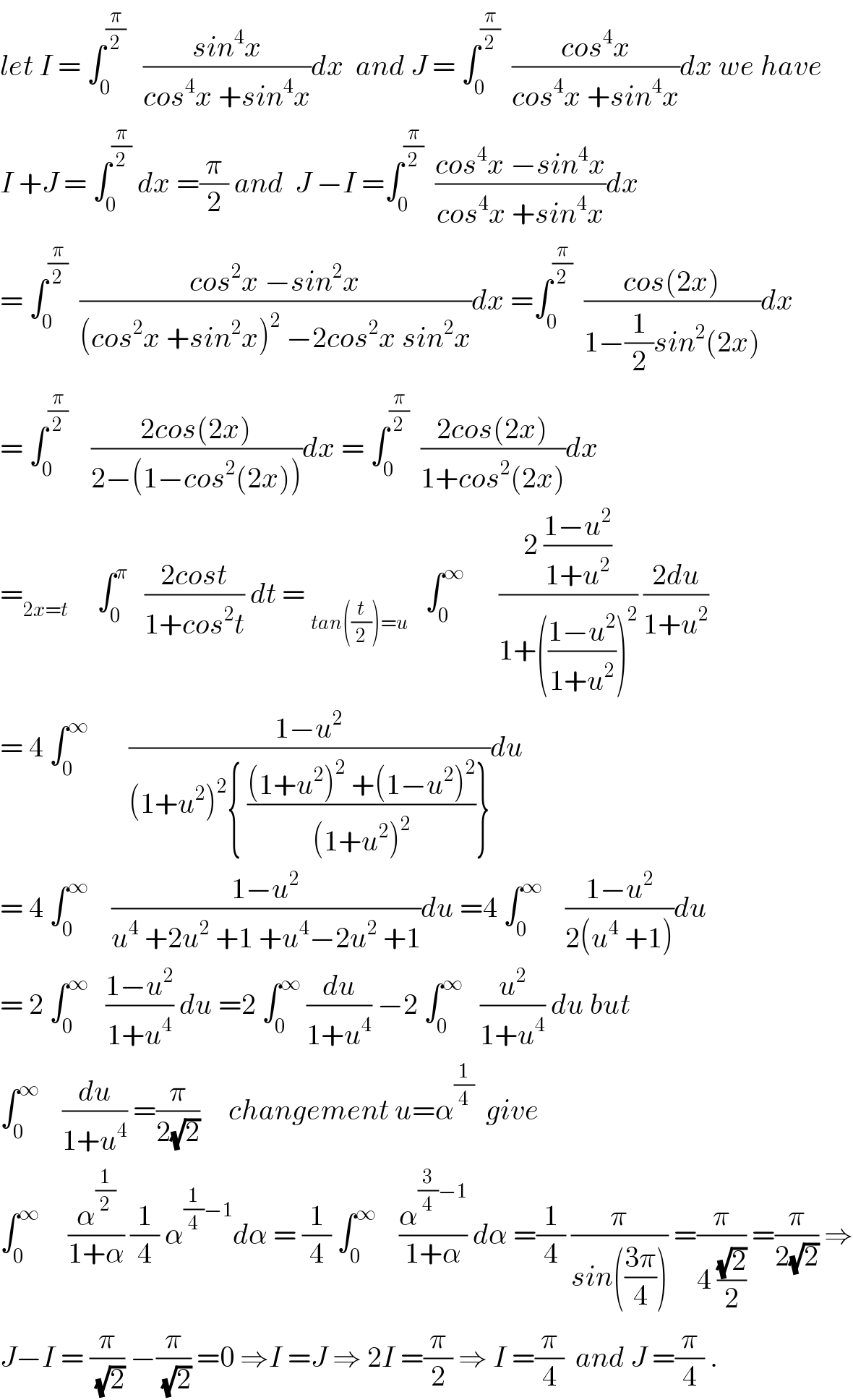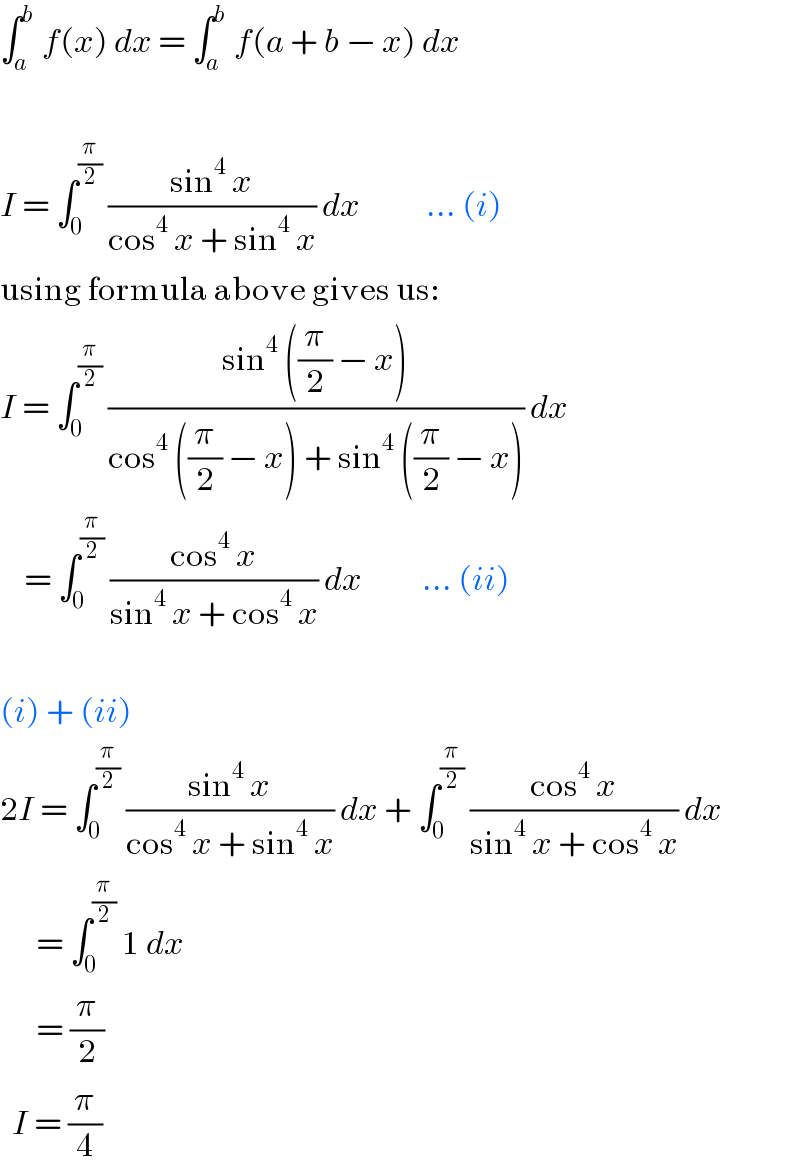
Question and Answers Forum
Question Number 43840 by peter frank last updated on 16/Sep/18

Commented by maxmathsup by imad last updated on 16/Sep/18

Answered by Joel578 last updated on 16/Sep/18

Commented by Joel578 last updated on 16/Sep/18

Commented by peter frank last updated on 16/Sep/18

Commented by tanmay.chaudhury50@gmail.com last updated on 16/Sep/18

